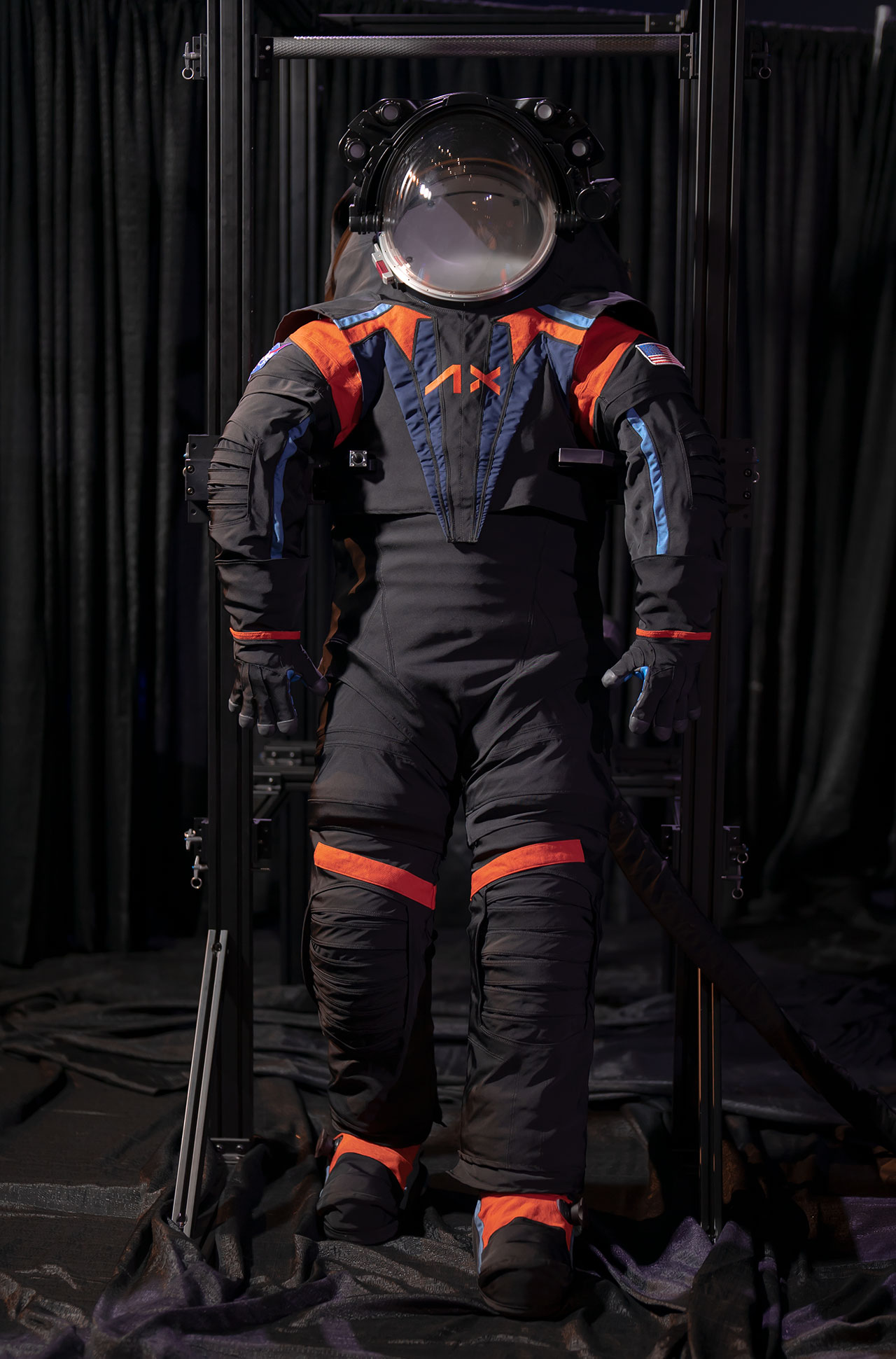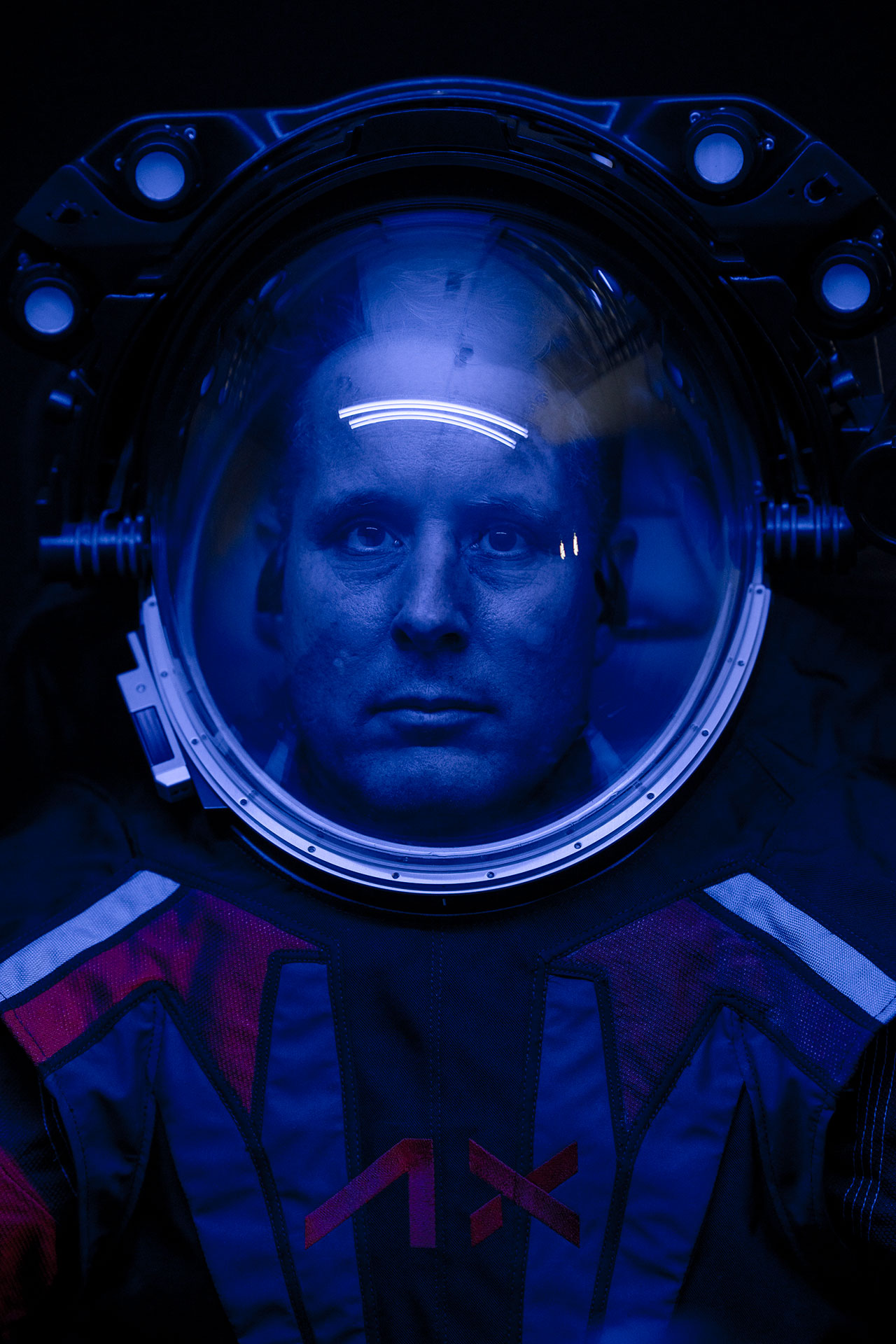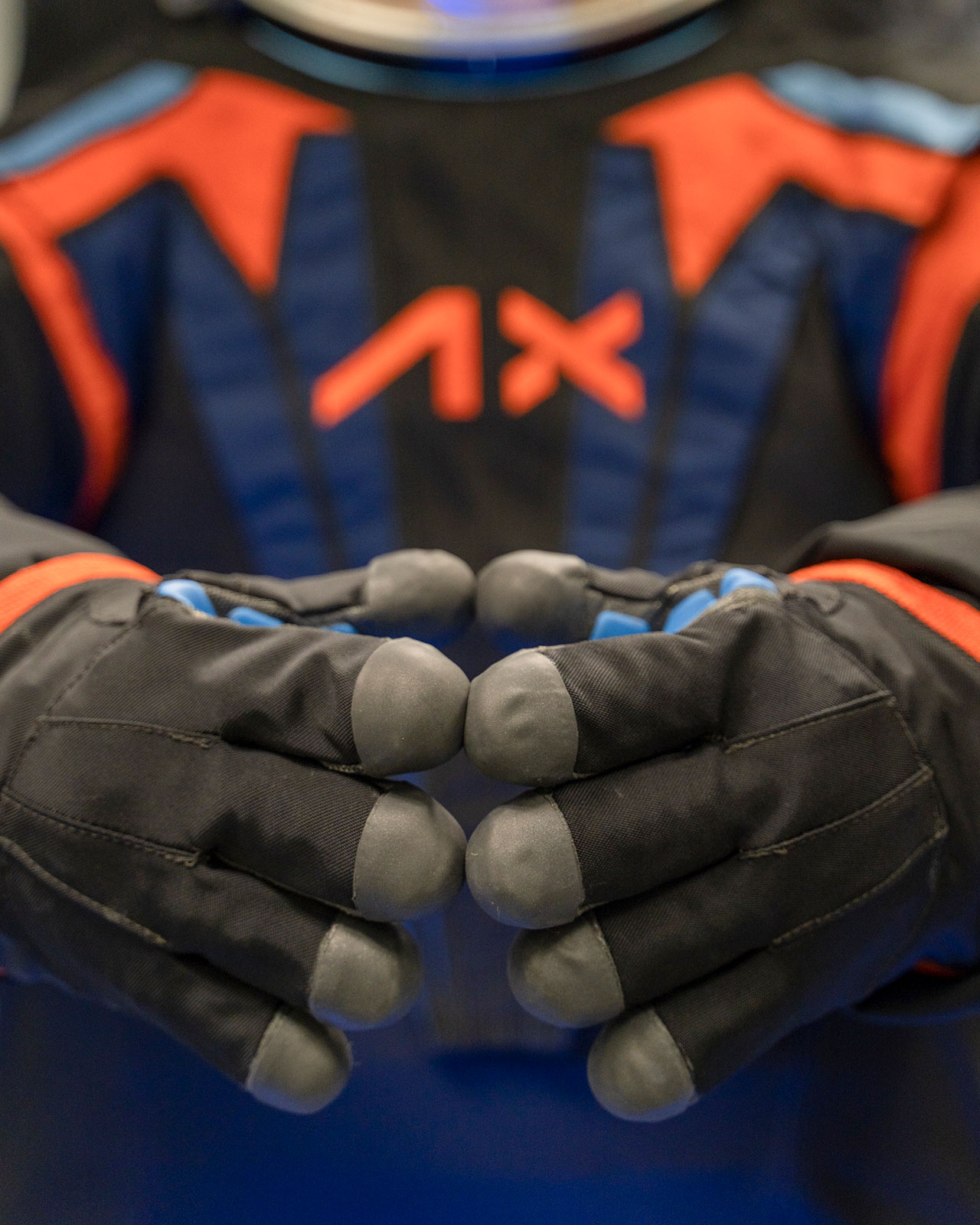Axiom Space reveals prototype spacesuit for Artemis astronauts on the moon
The prototype spacesuit features a cover layer designed by the costume designer for "For All Mankind."
HOUSTON — This suit was made for (moon) walking.
A prototype of the commercial spacesuit that U.S. astronauts plan to wear during the next mission to land on the moon was unveiled on Wednesday (March 15). Unlike the iconic garments worn by the Apollo astronauts more than 50 years, this new suit is a "rental" — designed, built and soon to be leased to the space agency by Axiom Space, a space services company.
"We're carrying on NASA's legacy by designing an advanced spacesuit that will allow astronauts to operate safely and effectively on the moon," Mike Suffredini, Axiom Space president and CEO, said in a statement. "Axiom Space's Artemis III spacesuit will be ready to meet the complex challenges of the lunar south pole and help grow our understanding of the moon in order to enable a long-term presence there."
Related: The evolution of the spacesuit in pictures





In 2022, NASA awarded Axiom a $228.5 million task order under a $1.26 billion contract to build the agency's next-generation spacesuits to support the Artemis lunar missions. Leveraging the xEMU, a suit that was developed by the engineers at NASA's Johnson Space Center in Houston, the new Axiom Extravehicular Mobility Unit (AxEMU) spacesuit provides increased flexibility, greater protection against the harsh environment and specialized tools to achieve exploration needs and expand scientific opportunities.

Using innovative technologies, the AxEMU will "enable exploration of more of the lunar surface than ever before," an Axiom description read.
The Axiom-furnished spacesuits that NASA astronauts will don on the moon will have a white outer layer to reflect heat, protecting the wearer from the extreme high temperatures when in sunlight. For the purposes of Wednesday's reveal and to conceal the suit's proprietary elements, the prototype was adorned with Axiom's logo and features the company's brand colors of blue, black and orange.
Breaking space news, the latest updates on rocket launches, skywatching events and more!
Axiom collaborated with costume designer Esther Marquis from the Apple TV+ alternate Apollo history series "For All Mankind" to create the custom cover layer.

The AxEMU will provide NASA with the commercially-developed human systems needed to access, live and work on and around the moon. The advanced suit was designed from the start to accommodate a wide variety of crew members.
On Artemis 3, targeted for launch in December 2025, NASA will land the first woman and the next American to walk on the moon. Future Artemis missions will bring the first person of color and other partner nations' astronauts, including crew members from Japan and the European Space Agency's member states.
Axiom Space partnered with a team of industry experts to create the AxEMU, including KBR, Air-Lock, Arrow Science and Technology, David Clark Company, Paragon Space Development Corporation, Sophic Synergistics and A-P-T Research. Though Axiom has trained privately-funded crews to launch to and live on the International Space Station and is developing its own commercial space station, this is the first time that the company has built a pressurized garment for use in space, let alone the moon.

"Our expert team is ready to provide NASA the next-generation spacesuit," said Mark Greeley, Axiom Space's extravehicular activity (EVA) program manager. "We carefully considered years of lessons learned by NASA and used that experience to build a spacesuit for the moon and for our future Axiom Space customers."
In addition to furnishing the AxEMU spacesuits, Axiom Space will also provide systems training and real-time operations support to NASA, among other services.
Follow collectSPACE.com on Facebook and on Twitter at @collectSPACE. Copyright 2023 collectSPACE.com. All rights reserved.
Join our Space Forums to keep talking space on the latest missions, night sky and more! And if you have a news tip, correction or comment, let us know at: community@space.com.

Robert Pearlman is a space historian, journalist and the founder and editor of collectSPACE.com, a daily news publication and community devoted to space history with a particular focus on how and where space exploration intersects with pop culture. Pearlman is also a contributing writer for Space.com and co-author of "Space Stations: The Art, Science, and Reality of Working in Space” published by Smithsonian Books in 2018.In 2009, he was inducted into the U.S. Space Camp Hall of Fame in Huntsville, Alabama. In 2021, he was honored by the American Astronautical Society with the Ordway Award for Sustained Excellence in Spaceflight History. In 2023, the National Space Club Florida Committee recognized Pearlman with the Kolcum News and Communications Award for excellence in telling the space story along the Space Coast and throughout the world.
-
Laniakea Pity it is only for "all mankind", and not for the all humans, and human kindReply
Using the old, depreciated therm "mankind" these days, in this century sounds very sad, and scary, especially when it is used but those who should be in front of the humanity and humankind. -
SMRpix You obviously haven't seen the show. The arc of it deals directly with your concern making the title somewhat ironic. I suspect you would be pleased.Reply -
Jake Errs Cool looking suit, but everything written and said about it is so vague.Reply
How will the suit handle lunar dust? The tiny electrostatic particles of razor-sharp rock that get into every nook and cranny, cling tenaciously, and wear down fabrics, seals, and protective coatings. That mess with controls and electronics. Will the outer cover somehow mitigate dust collection or repel dust? How will the couplings between the gloves, shoes, and main body handle the ongoing abrasion?
Is Axiom working closely with Sharon Miller and the team at NASA Glenn Research Center to address the huge issues that lunar dust introduces?
From the pictures and videos, it doesn't appear to be. At first glance, this inner suit looks like dust bait. Like the dust will get into every fold, pocket, and crevice in the suit and cause serious problems within hours, not days.

